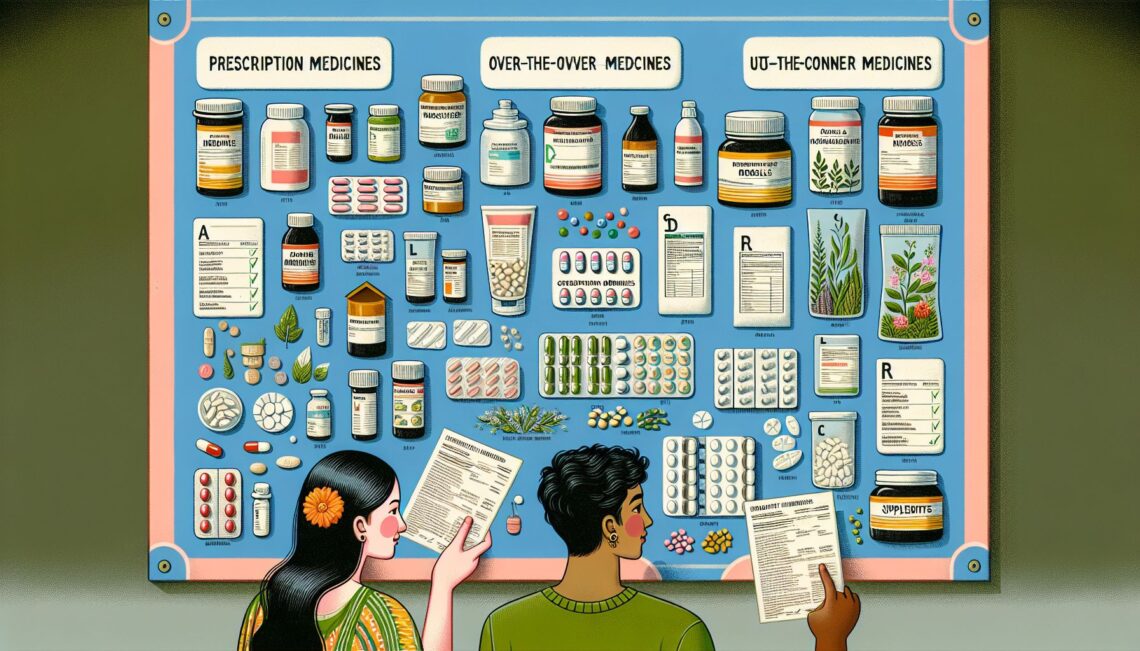
Understanding the Different Types of Medicines
Medicines play a pivotal role in maintaining and restoring our health. From helping alleviate common ailments to treating chronic conditions, medications have become an integral part of our lives. However, not all medicines are created equal, and understanding their different types is crucial for effective treatment. Let’s dive into the various categories of medicines and explore how they work.
Introduction
The world of medicine encompasses a vast array of drugs, each tailored to target specific health issues. These medicines can be broadly categorized into six main types, including prescription drugs, over-the-counter (OTC) medicines, supplements, complementary medicines, traditional medicines, and homeopathic remedies. Each type has unique characteristics and functions, catering to different needs.
Body
1. Prescription Drugs
Prescription drugs are medications that require a doctor’s authorization. Typically, they treat severe or complex health conditions and are potent in nature. Prescription drugs undergo rigorous testing to ensure their safety and efficacy. It is crucial to follow the prescribed dosage and duration to avoid any adverse effects.
2. Over-the-Counter Medicines
OTC medicines are readily available without a prescription from pharmacies or supermarkets. These drugs are used to alleviate common ailments like colds, allergies, headaches, and body aches. Although generally safe, it is essential to read and follow the instructions carefully to avoid potential risks such as drug interactions or allergic reactions.
3. Supplements
Supplements are products that contain nutrients, minerals, or herbal ingredients, designed to enhance an individual’s overall health. These are commonly available as tablets, capsules, or powders and are not meant to treat specific diseases. However, supplements can complement a healthy diet and provide necessary vitamins and minerals that may be lacking.
4. Complementary Medicines
Complementary medicines include various treatments such as acupuncture, chiropractic therapy, or herbal medicines. These treatments are often used alongside traditional medical practices to provide a holistic approach to healing. While the effectiveness of some complementary medicines is still debated, they continue to be embraced by many individuals seeking alternative care.
5. Traditional Medicines
Traditional medicines draw on centuries of cultural knowledge and practices. These medicines are rooted in cultural beliefs, often using natural remedies and techniques that have been passed down through generations. Traditional medicines can be found worldwide and are an important part of preserving cultural heritage.
6. Homeopathic Remedies
Homeopathy is a medical system that focuses on using highly diluted substances to stimulate the body’s healing processes. Homeopathic remedies are based on the principle of “like cures like,” meaning a substance that causes symptoms in a healthy individual can be used to treat similar symptoms in a sick person. While controversial, homeopathy remains popular in many countries.
Conclusion
Understanding the different types of medicines allows us to make informed choices when it comes to our health. Prescription drugs, OTC medicines, supplements, complementary medicines, traditional medicines, and homeopathic remedies each serve distinct purposes in addressing various health conditions. It is important to consult healthcare professionals and use medicines responsibly to ensure their safe and effective use. By gaining knowledge about the different types of medicines, we empower ourselves to take control of our well-being and make informed decisions regarding our healthcare.
You May Also Like

Exploring the Different Types of Medicines
April 17, 2024
A Guide to Different Types of Medicines
February 14, 2024

